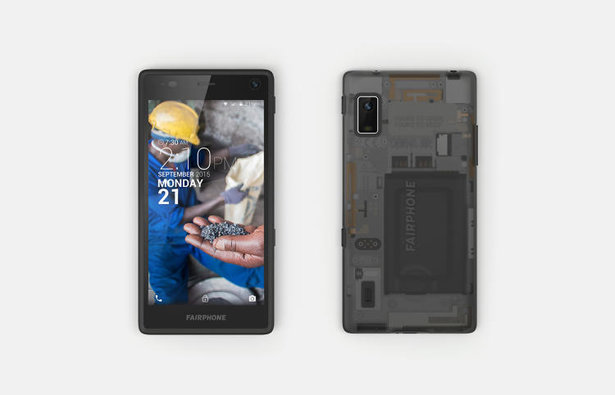The smartphone company is challenging the status quo by building phones differently.
On the fifth floor of a nondescript Amsterdam building lies Fairphone. It is the world’s first socially responsible and sustainable company to design, manufacture and sell mobile phones. Like most companies, Fairphone aims to make a profit. But less common is that the company refuses to do so at the expense of its purpose. As it’s name suggests, Fairphone operates on the principle that a philosophy of fairness can inform its production and sales. Fairness, balance and accountability to all stakeholders—including its employees—sits at the center of the organization’s purpose.
When I walked into Fairphone headquarters, employees were busy coding, engaging one another in conversation, talking on their phones and making tea in its open-plan office. The scene reminded me of many other high-tech start-up firms I have visited in the past. It reminded me of places I have worked at, too. Whiteboards were chock-full of ideas and various scribbles. The hum of activity was palpable. There were huddles of people working together. Plates of pastries were scattered across the kitchen bar. However, people were not working at Fairphone for the free food or for the discounted bus pass.
Bas van Abel is the Founder and CEO of Fairphone. He is an individual who clearly wants to change the world. In particular, van Abel sees the world needing to evolve from what he calls its “pernicious and unsustainable ways.” His perspective is both reactive and inclusive: “We are part of everything. None of us at Fairphone feels as though the financial system is connected to who we are, and as a result, we all need to collaboratively think differently and act differently, too.” The “we” he refers to is not only Fairphone and its employees, but society itself.
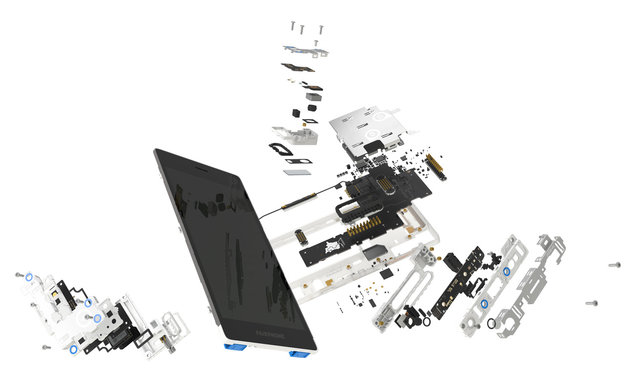
Van Abel has built a business based on one simple point: We are all part of the ecosystem. At Fairphone, society is part of the ecosystem. The core of the organization’s purpose is to build a product that delivers value to all stakeholders that make up the entire ecosystem. As van Abel claims, “Fairphone goes beyond being a company.” He believes Fairphone—and all organizations, for that matter—is an important part of the change needed in today’s model of economics.
Fairphone’s purpose is to manufacture mobile phones that are ethical. The phones are made from conflict-free minerals assembled by firms who also ensure fair wages for the factory workers. The 40 employees who work directly at Fairphone in Amsterdam think of themselves as caretakers of the Earth. They make a mobile phone but do so ensuring they keep the greater good of society in mind.
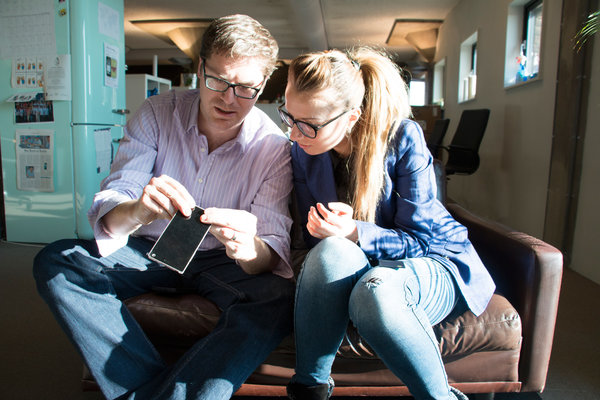
Operating as an independent social enterprise since 2013, Fairphone seeks to achieve a balance between its organizational purpose and the need for profit. Like any private company, Fairphone requires increased revenues and positive profit margins in order not only to grow the business but simply to stay in business. Everyone involved in Fairphone subscribes to the overarching purpose, nevertheless all have bills to pay, too. The company is unwilling, though, to allow for imbalance: Organizational purpose cannot be sacrificed in favor of the quest for profit.
Van Abel believes the company will grow but not at the expense of its organizational purpose to serve the ecosystem. He chose to start a business in the commercial space—and the mobile phone industry specifically—mostly because he is someone who loves to learn. In fact, loving to learn is part of van Abel’s personal definition of purpose. We all have personal priorities and goals. Van Abel places a tremendous amount of value in learning, so much so that he considers it one of his personal priorities. Think of it as one of his core operating principles. If van Abel is not learning, he is not fulfilled and therefore he is not meeting his own personal sense of purpose.
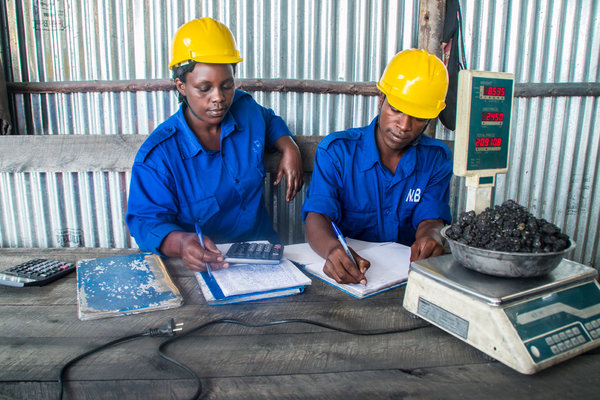
Starting Fairphone helped satisfy van Abel’s personal need to learn and it cemented his quest to create a more sustainable mobile phone. For example, he teamed up with the United Nations in the Congo to learn how the company might source materials and minerals for the phone more ethically. This partnership has allowed him to learn, and to continue fueling Fairphone’s purpose. When he began working with local leaders in the Congo, he used this connection as a way to acquire new knowledge about the local working conditions—as well as how materials were being sourced by suppliers of the iPhone and Android devices—in order to improve Fairphone’s procurement and production processes.
Van Abel’s experiences with Fairphone have given him further insight into the value of purpose and the efficacy of new practices. “The only way a ‘purpose-with-profit’ model will work is if everyone believes it. How can you create a new economic model of thinking to achieve a profit with purpose? All the time at Fairphone we’re trying to show that purpose can balance with profit. Mistakes are made at Fairphone, but we don’t think binary. It’s not people; rather it’s the systems of stock exchanges and financial models that are the problem. It’s the long-term view that we take. The better question is how can one challenge the status quo, and that’s what Fairphone keeps doing.”
He concludes our discussion with an expansive observation: “The purpose of Fairphone goes beyond being a company. All of us at Fairphone are looking at the world in a different way. We can only do that as being a part of a bigger thing. We are part of that change toward a greater purpose, and I’m so proud.”
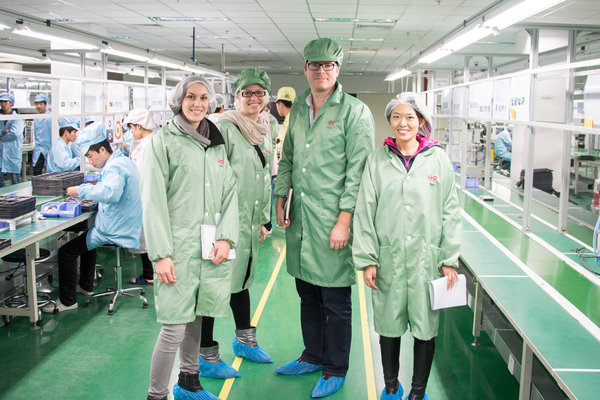
After departing, it dawned on me that van Abel’s personal sense of purpose was being fulfilled at least partially through Fairphone. The personal values, attributes, interests and priorities that are important to van Abel are being met through Fairphone’s organizational purpose and the role he serves at the company. He wants to learn and change the world, and he gets to do that at Fairphone. Furthermore, van Abel has developed a culture and hired people at Fairphone that supports the intersection of three different types of purpose: personal, organizational and role.
He believes an organization’s purpose is to serve society and that includes its employees. Fairphone has dedicated its mission to carry this out in the form of making a more ethical mobile phone. Not only is van Abel personally engaged and seemingly delighted to work in a role that permits him the opportunity to operate with a purpose mindset, but he also is an individual who is passionate, innovative and committed to a meaningful and engaging workplace that serves all stakeholders.
Could it be that van Abel, Fairphone and its employees are exhibiting the three key principles of what I call The Purpose Effect?
The Purpose Effect is a three-way relationship between an individual’s personal sense of purpose in life, the organization’s purpose and a person’s purpose in their role at work. When all three aspects of purpose are properly defined, are well aligned and function in partnership with one another, then the employee, the organization and society mutually benefit.
In the case of Fairphone, the answer is a resounding yes.
Source: Fast Company
